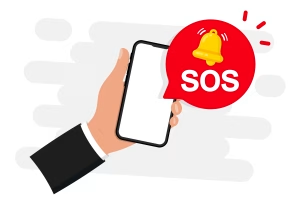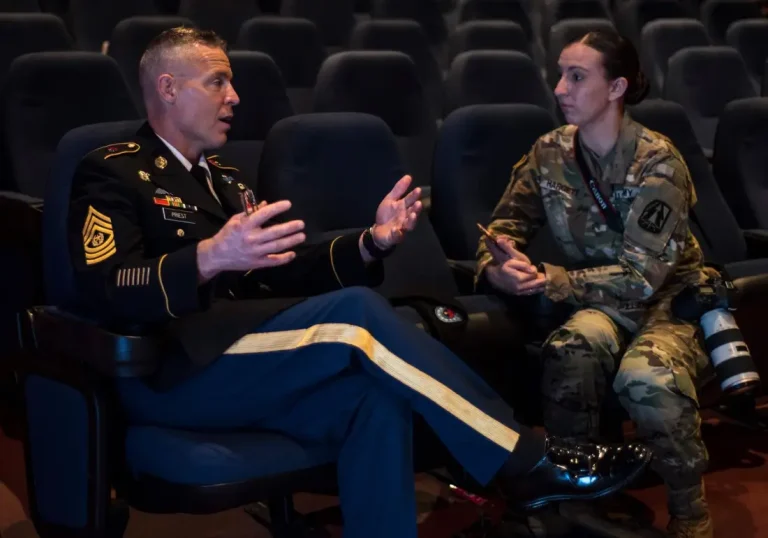The Weight of Broken Promises: A Story of Betrayal, Growth, and Second Chances
Chapter 1: The Call That Changed Everything
The morning light filtered through the windows of my small apartment, casting gentle shadows across the kitchen table where I sat with my coffee and laptop, planning my next move. After fifteen years of running “Bloom & Blossom,” my little flower shop on Maple Street, I’d finally sold it to a young couple who reminded me of myself when I’d first started—full of dreams and determination, willing to work eighteen-hour days to make their vision come true.
The sale had been bittersweet. That shop had been my baby, my first real accomplishment after college. I’d started it with a small inheritance from my grandmother and built it into something the whole community treasured. But after a decade and a half of early mornings at the flower market, endless wedding consultations, and the constant worry about seasonal fluctuations, I was ready for a change.
The money from the sale sat in my savings account like a promise of freedom. Not a fortune, but enough to take my time figuring out what came next. Maybe I’d travel. Maybe I’d go back to school. Maybe I’d start something entirely new. For the first time in my adult life, I had options.
That’s when my phone rang.
“Ivy?” My sister Lisa’s voice was tight, strained in a way that immediately put me on alert. “I need to talk to you. Are you busy?”
“Never too busy for you,” I said, closing my laptop. “What’s going on?”
“Can I come over? I don’t want to talk about this on the phone.”
Twenty minutes later, Lisa sat in my kitchen, her hands wrapped around a mug of tea she wasn’t drinking. Her usually perfect hair was pulled back in a messy ponytail, and I noticed she’d been picking at her nail polish—a nervous habit from childhood that only surfaced when she was really stressed.
“We’re in trouble, Ivy,” she said without preamble. “Real trouble.”
I waited, letting her find her words.
“Rick’s business has been struggling for months. He didn’t want to worry me, so he kept it to himself until… until it was too late.” She looked up at me with eyes that were red-rimmed and exhausted. “We’re behind on the mortgage. Three months behind. And there are other debts, credit cards, a business loan that’s coming due…”
My heart sank. Rick had started his own construction company five years ago, and it had seemed to be doing well. They’d moved into a beautiful house in the suburbs, Lisa had quit her part-time job at the dental office to focus on the kids, and they’d been living what looked like a comfortable middle-class life.
“How bad is it?” I asked gently.
“We could lose the house.” Lisa’s voice cracked. “The kids don’t know yet, but if we can’t catch up on the payments, we’ll be in foreclosure within two months.”
“What about Rick’s family? Your in-laws?”
“They already helped us last year when things got tight. They gave us their entire retirement savings, Ivy. We can’t ask them for more.”
I felt the familiar weight of being the responsible one, the one everyone turned to when things got difficult. It had been this way since we were kids—Lisa, three years younger, had always been the dreamer, the one who believed everything would work out, while I was the planner, the one who saved her allowance and thought about consequences.
“How much do you need?” I asked, though I already suspected I knew where this conversation was heading.
“Twenty-five thousand,” she whispered. “I know it’s a lot, but it would cover the back payments and give us enough breathing room to get back on our feet. Rick has some big jobs lined up for the spring, and I’m already looking for work again.”
Twenty-five thousand dollars. Nearly half of what I’d made from selling my shop. The nest egg I’d been planning to use for my own future, my own dreams.
“I wouldn’t ask if we had any other choice,” Lisa continued. “But you just sold the shop, and I know you’re in a good place financially. We’d pay you back with interest, I promise. Everything in writing, whatever you need.”
I stared at my sister, seeing not just the woman she’d become but the little girl who used to crawl into my bed during thunderstorms, who’d cried when I left for college, who’d been my maid of honor at my wedding and had held my hand through my divorce. This was family. This was what family did for each other.
“Okay,” I said. “I’ll help.”
The relief that flooded Lisa’s face was immediate and overwhelming. She started crying—not the delicate tears of earlier, but deep, shoulder-shaking sobs that came from somewhere primal.
“Thank you,” she gasped. “Thank you so much. I don’t know what we would have done.”
“We’ll figure out the details,” I said, moving to put my arms around her. “But Lisa, I need you to understand—this isn’t a gift. I’m helping you because I love you, but I need this money back. It’s my security, my future.”
“Of course,” she said quickly. “Absolutely. We’ll pay you back as soon as we can get back on our feet. Six months, maybe a year at most.”
That afternoon, Rick came over to discuss the terms. He looked haggard, older than his thirty-eight years, and I could see the shame in his eyes. He’d always been proud, sometimes to a fault, and asking for help clearly went against every instinct he had.
“I want you to know how much this means to us,” he said, sitting across from me at the kitchen table where I’d drawn up a simple loan agreement. “I’ve never been in a position like this before. The business… I made some bad decisions, trusted the wrong people. But I’m going to make this right.”
We went over the terms together. Twenty-five thousand dollars, to be repaid within two years with three percent interest. It wasn’t legally binding—we didn’t have a notary or witnesses—but it was signed by all three of us, and I believed that would be enough.
“I know it’s just a piece of paper,” Rick said, signing his name with a flourish. “But my word is my bond. You’re saving our family, Ivy. I won’t forget that.”
The next morning, I transferred the money into their account. As I watched the numbers change on my banking app, I felt a mix of emotions—anxiety about giving up so much of my security, but also a warm sense of doing the right thing. This was what family meant. This was what love looked like in action.
Lisa called me that evening, her voice lighter than I’d heard it in months.
“The payment went through,” she said. “We’re caught up on the mortgage, and Rick was able to pay off the most urgent creditors. I can’t tell you how grateful we are.”
“I’m glad I could help,” I said. “Just focus on getting back on your feet.”
“We will. I promise.”
Looking back, I realize that was the moment everything changed. Not because of the money—I’d made peace with that decision—but because of what happened next. Or rather, what didn’t happen.
Chapter 2: The Silence Begins
The first few months after lending Lisa and Rick the money, I was careful not to bring up repayment. I didn’t want to be the kind of person who held money over family, who made every interaction about debt. I trusted that they would reach out when they were ready to start paying me back.
But I was also watching. Not suspiciously, just… attentively. I noticed when Lisa posted pictures of a weekend trip to a wine country resort on Facebook. I saw Rick’s new truck parked in their driveway when I drove by on my way to visit our parents. I observed that they seemed to be eating out more often, based on the restaurant check-ins that appeared on Lisa’s social media.
I told myself there were explanations for all of it. Maybe the weekend trip was a gift from Rick’s parents, or they’d used credit card points. Maybe the truck was a business necessity, or he’d gotten a good deal on a used one. Maybe they were celebrating getting back on their feet.
I wanted to believe these explanations because the alternative was too painful to consider.
Six months passed. I’d expected to hear something by then—not necessarily payment, but at least a conversation about their progress, their plans, their timeline. Instead, I got silence.
Not complete silence, of course. We still talked regularly. Lisa would call to chat about the kids, about our parents, about her new job at a real estate office. Rick would wave and smile when I saw him around town. We still gathered for family dinners and holiday celebrations.
But the subject of the loan never came up. It was like it had never happened.
At first, I thought maybe they were waiting for me to bring it up. Maybe they were embarrassed about still needing time, or maybe they thought I’d forgotten about it. So I waited a little longer, thinking they would eventually say something.
Eight months. Nothing.
Ten months. Still nothing.
By the time a full year had passed, I was starting to feel something I’d never experienced with my sister before: resentment. Not just about the money, but about the silence. About the way they’d returned to their normal lives while I’d reorganized my entire financial future to help them.
I’d started a small floral design business from my apartment, taking on wedding work and special events. It was slower to build than I’d hoped, partly because I was being more conservative with my spending, knowing I had twenty-five thousand dollars less in my safety net than I’d planned.
When I finally decided to bring up the loan, I chose a casual moment. We were at Lisa’s house for Sunday dinner, and the kids were outside playing while the adults sat around the kitchen table with coffee and dessert.
“Hey,” I said, trying to keep my tone light. “I was wondering how things are going with getting back on your feet. Are you guys feeling more stable now?”
Lisa and Rick exchanged a quick glance—so brief I almost missed it.
“Much better,” Lisa said quickly. “Rick’s got steady work now, and my job at the real estate office is going well. We’re in a much better place than we were a year ago.”
“That’s great,” I said. “I’m really happy to hear that.”
I waited for them to connect the dots, to realize that if they were in a better place, we should probably talk about repayment. But they didn’t.
“Rick even got a bonus last month,” Lisa continued. “It was nice to have a little extra money for once.”
A bonus. Extra money. And still no mention of the loan.
“That’s wonderful,” I said, my smile feeling forced. “It must be such a relief to have financial stability again.”
“It really is,” Rick chimed in. “I was so stressed last year. I don’t know what we would have done without…”
He trailed off, and I thought for a moment that he was going to acknowledge what I’d done for them. But instead, he just shrugged.
“Without family,” he finished lamely.
I left that dinner feeling more confused than angry. It was like the loan existed in some parallel universe that only I could access. In their world, apparently, it had never happened.
As the months continued to pass, I found myself paying closer attention to their spending habits. Not because I wanted to spy on them, but because I was trying to understand. Were they really still struggling, or were they just comfortable having forgotten about their debt to me?
The evidence was mixed. They weren’t living extravagantly, but they weren’t living like people who owed twenty-five thousand dollars either. There were regular date nights, new clothes for the kids, a vacation to Disney World that Lisa documented extensively on social media.
I started taking screenshots. Not because I planned to confront them, but because I was beginning to doubt my own memory. Had I imagined the desperation in Lisa’s voice that day she’d come to ask for help? Had I dreamed the relief on Rick’s face when I’d agreed to lend them the money?
The screenshots were proof that something was wrong with this picture. People who were struggling to pay back a significant loan didn’t post pictures of expensive dinners and weekend getaways. They didn’t buy new cars or take family vacations.
But I still didn’t say anything. I told myself I was being patient, giving them time to get fully back on their feet. I told myself that confronting them would damage our relationship, that family was more important than money.
Really, I think I was just scared. Scared of what it would mean if my sister and brother-in-law had decided to simply ignore their debt to me. Scared of what it would say about our relationship, about who I was to them.
So I waited. And waited. And waited.
Chapter 3: The Confrontation
By the time the second anniversary of the loan rolled around, I couldn’t stay silent anymore. The weight of the unspoken debt was affecting every interaction I had with Lisa and Rick. I found myself analyzing their every purchase, every decision, every casual comment about money. I was becoming someone I didn’t like—suspicious, resentful, bitter.
The breaking point came at Thanksgiving dinner at their house. Lisa had gone all out, as she always did for holidays. The table was set with her good china, there were fresh flowers in crystal vases, and the meal looked like something from a cooking magazine. Everything was perfect, polished, expensive.
As I sat there picking at my turkey, I couldn’t stop thinking about the credit card bills they must have racked up for all of this. The wine alone probably cost more than I spent on groceries in a week. And they still hadn’t said a word about the twenty-five thousand dollars they owed me.
After dinner, while the kids were in the living room watching football and Lisa was in the kitchen putting away leftovers, I found myself alone with Rick on the back patio.
“This is nice,” I said, gesturing toward the outdoor furniture set that definitely hadn’t been there the last time I’d visited. “New patio furniture?”
“Yeah, Lisa found it on sale,” Rick said, settling into one of the cushioned chairs. “She has such a good eye for this stuff.”
On sale. I wondered what “on sale” meant when you owed your sister-in-law twenty-five thousand dollars.
“Rick,” I said, my heart pounding. “I need to talk to you about something.”
He looked up from his beer, and I saw a flicker of something in his eyes—awareness, maybe, or resignation.
“It’s been two years,” I continued. “Since the loan. I haven’t wanted to pressure you guys, but I need to know what the plan is for paying me back.”
Rick was quiet for a long moment, staring out at the yard where his kids’ expensive swing set dominated the landscape.
“Things have been tight,” he said finally. “Tighter than they look, you know? The business is doing okay, but it’s not consistent. Some months are good, some are…” He shrugged. “We’re still catching up from that rough patch.”
“But you took a vacation to Disney World last month,” I said gently. “And Lisa’s been posting about date nights and shopping trips. I’m not judging, I’m just trying to understand.”
“Those things… they’re not as expensive as they look. We used points for the Disney trip, and the date nights are just dinner at Applebee’s, not fancy places.”
I wanted to believe him. I wanted to believe that there was a reasonable explanation for everything I’d observed. But something in his tone, in the way he wouldn’t quite meet my eyes, told me that he was minimizing, maybe even lying.
“What’s the timeline?” I asked. “For starting payments?”
“We’re hoping to start paying you back next year,” he said. “Maybe not the full amount all at once, but we could probably do monthly payments.”
Next year. Three years after the loan. For the first time, I felt a flicker of real anger.
“Rick, I gave you guys twenty-five thousand dollars when you were about to lose your house. I emptied half my savings account to help you. I’m not asking for gratitude, but I am asking for respect. And part of respect is keeping your word.”
“I know,” he said quickly. “And we appreciate everything you did. We’re not trying to avoid paying you back. We just need a little more time.”
That night, I went home and looked through all the screenshots I’d been taking over the past year. Restaurant check-ins, shopping hauls, weekend trips, new purchases. If I added up just the things I could see, it would probably equal several thousand dollars.
They had money. They were choosing to spend it on other things.
The realization hit me like a physical blow. This wasn’t about financial hardship anymore. This was about priorities. And paying me back wasn’t one of them.
I decided to have a more direct conversation with Lisa. If Rick was going to deflect and minimize, maybe my sister would be more honest with me.
I called her the next day.
“I talked to Rick yesterday about the loan,” I said without preamble. “He said you guys might be able to start making payments next year.”
There was a pause on the other end of the line.
“Yeah, we’re hoping to get there,” Lisa said. “I know it’s been a long time, Ivy. We haven’t forgotten.”
“Haven’t you?” I asked. “Because it feels like you have. It feels like you’ve moved on with your lives and just decided that debt doesn’t exist anymore.”
“That’s not fair,” Lisa said, her voice getting defensive. “We’re doing our best. You don’t know what our financial situation really looks like.”
“I know you went to Disney World last month. I know Rick drives a truck that’s worth more than most people’s annual salary. I know you’re eating out and going on weekend trips and shopping for new clothes.”
“So now you’re spying on us?”
“I’m not spying. I’m observing. And what I’m observing is that you have money for everything except paying me back.”
Lisa was quiet for a moment, and when she spoke again, her voice was cold.
“You said you could afford to lend us the money. You said it wouldn’t hurt you.”
“I said I could afford to lend it. I didn’t say I could afford to give it away.”
“Well, maybe you should have been more clear about that.”
The line went dead. She’d hung up on me.
I sat in my apartment, staring at my phone, feeling like I’d just been slapped. This was my sister, the person I’d loved and protected and supported my entire life. And she was treating me like I was the unreasonable one for expecting her to keep her word.
That’s when I realized that this wasn’t just about money anymore. It was about who we were to each other, and what family meant. In my world, family helped each other and honored their commitments. In their world, apparently, family was something you took from when you needed it and ignored when it was inconvenient.
I didn’t call her back. I didn’t reach out to Rick. I decided that if they wanted to pretend the loan didn’t exist, I would stop pretending our relationship was what I’d thought it was.
Chapter 4: The Reckoning
The months following my confrontation with Lisa and Rick were some of the loneliest of my life. Not just because I’d lost my sister and brother-in-law, but because I’d lost my faith in something fundamental—the idea that family meant unconditional love and support.
I threw myself into my work. My floral design business was growing slowly but steadily, and I found comfort in the precise, beautiful work of creating arrangements for other people’s celebrations. Weddings, anniversaries, graduations—moments of joy that reminded me that not all relationships were disappointing.
I also started seeing a therapist, Dr. Sarah Chen, who helped me work through the complex emotions I was experiencing. Grief, anger, betrayal, but also guilt—guilt for being angry, guilt for cutting off contact, guilt for caring about money when it came to family.
“You’re not being unreasonable,” Dr. Chen told me during one of our sessions. “You entered into an agreement with people you trusted, and they violated that trust. It’s natural to feel hurt and angry.”
“But they’re my family,” I said. “Isn’t family supposed to be more important than money?”
“Family isn’t supposed to take advantage of each other,” she replied. “And using family as an excuse to avoid responsibility isn’t love—it’s manipulation.”
Those words stayed with me. Manipulation. I’d never thought of Lisa and Rick as manipulative people, but looking back, I could see the patterns. The way they’d presented the loan as a temporary emergency. The way they’d avoided the subject for two years. The way they’d made me feel like I was being unreasonable for expecting them to keep their word.
I started to understand that I hadn’t just lost twenty-five thousand dollars. I’d lost the illusion that being family meant being safe from betrayal.
About six months after our confrontation, I ran into Rick at the grocery store. He was in the produce section, and I was buying flowers for a client’s event. We saw each other at the same time, and there was a moment of awkward recognition.
“Ivy,” he said, approaching me with a hesitant smile. “How are you?”
“Fine,” I replied, not returning the smile. “You?”
“Good. Busy with work, you know how it is.”
He was acting like nothing had happened, like we were just distant family members who rarely saw each other, rather than people who’d had a major conflict about money he still owed me.
“Listen,” he said, glancing around to make sure no one was listening. “I’ve been meaning to call you. About the money. We should be able to start making payments soon.”
“When?” I asked bluntly.
“Well, we’re hoping by the end of the year. Maybe January.”
It was March. He was asking for another ten months, on top of the two and a half years they’d already had.
“Rick,” I said, “do you actually intend to pay me back? Or are you just going to keep moving the timeline every time I ask?”
He looked hurt, as if I’d accused him of something unreasonable.
“Of course we intend to pay you back. We’re not thieves, Ivy. We just need time.”
“You’ve had time. You’ve had two and a half years.”
“And we’ve been struggling for two and a half years. Just because we occasionally go out to dinner doesn’t mean we’re swimming in money.”
I realized then that we were living in completely different realities. In his reality, they were still struggling victims who deserved patience and understanding. In my reality, they were people who’d chosen to prioritize their wants over their obligations.
“I don’t believe you,” I said quietly.
Rick’s face flushed red. “Excuse me?”
“I don’t believe you’re struggling. I think you’re comfortable, and you’ve decided that paying me back isn’t important.”
“That’s a terrible thing to say.”
“It’s an honest thing to say.”
He stared at me for a moment, and I saw something shift in his expression. The pretense of friendliness disappeared.
“You know what, Ivy? Maybe you’re right. Maybe we have been spending money on other things. But you’re not exactly hurting for cash, are you? You sold your business. You’re doing fine.”
“That’s not the point.”
“Isn’t it? You can afford to wait. We can’t afford to rush.”
And there it was. The truth I’d been avoiding for months. They weren’t planning to pay me back because they didn’t think they had to. They thought I could afford to lose the money, so they’d decided to keep it.
“Rick,” I said, “I want you to know that I’m not going to ask you about this again. I’m not going to call or text or bring it up at family dinners. But I’m also not going to pretend that everything is fine between us.”
“What does that mean?”
“It means that people who steal from me aren’t people I want in my life.”
“We didn’t steal—”
“You did. You took my money under false pretenses and decided not to give it back. That’s theft.”
I left him standing there in the produce section and went home to my apartment, where I sat on my couch and cried. Not because I was sad, but because I was free. Free from the weight of expectation, free from the hope that things would change, free from the need to maintain a relationship with people who didn’t respect me.
That night, I blocked Lisa and Rick on social media. I told my parents that I wouldn’t be attending family gatherings where they were present. I changed my phone number and didn’t give them the new one.
I was done.
Chapter 5: Building Something New
The year following my final confrontation with Rick was transformative in ways I hadn’t expected. Without the constant anxiety of wondering when I’d be paid back, without the mental energy spent analyzing every social media post for signs of financial hypocrisy, I found myself with space to actually build the life I wanted.
My floral design business flourished. Word of mouth brought me more clients than I could handle, and I found myself specializing in intimate, personal celebrations—the kind of events where every detail mattered because every relationship was precious. I wasn’t just arranging flowers; I was helping people mark the most important moments of their lives.
I also started teaching workshops at the community center. “Floral Design for Life Celebrations” became a monthly class where I taught women how to create beautiful arrangements for their own homes and events. It was incredibly fulfilling to share my knowledge and watch other women discover they had artistic abilities they’d never recognized.
The workshops attracted an interesting mix of people—young mothers looking for a creative outlet, retirees exploring new hobbies, women going through divorces who wanted to learn something just for themselves. We’d spend two hours arranging flowers and talking about life, and I found myself building genuine friendships with people who appreciated what I had to offer.
One of my regular students was Margaret, a woman in her sixties who’d started coming to the workshops after her husband passed away. She was learning to live alone for the first time in forty years, and the act of creating something beautiful with her hands seemed to help her process her grief.
“I love how you teach us to work with what we have,” she told me one afternoon as we cleaned up after a workshop. “You don’t make us feel like we need expensive flowers to create something meaningful.”
“Some of my most beautiful arrangements have come from grocery store flowers and greenery I found in my own backyard,” I replied. “It’s not about the cost of the materials. It’s about the intention behind the creation.”
Margaret nodded thoughtfully. “That’s true about more than just flowers, isn’t it?”
It was. I was learning that the most meaningful parts of my life—my work, my friendships, my sense of purpose—had been built with intention, not expensive materials. I was happier living in my small apartment, working with modest budgets, and surrounding myself with people who valued authenticity over appearance.
About eighteen months after I’d cut contact with Lisa and Rick, I received an unexpected phone call. It was from my cousin Jenny, who lived across the country but stayed in touch with our extended family.
“I heard about what happened with Lisa and Rick,” she said. “Mom told me about the loan situation.”
I was surprised. I’d asked my parents not to discuss the details with other family members, but apparently word had gotten out anyway.
“I’m sorry you had to deal with that,” Jenny continued. “But I wanted you to know that you’re not alone. Rick borrowed money from my parents three years ago, and from Uncle Tom before that. He’s never paid anyone back.”
This was news to me. Rick had presented their financial crisis as a one-time emergency, but apparently it was part of a pattern.
“How much?” I asked.
“Five thousand from my parents, three thousand from Uncle Tom. And I think there were others. He’s been working his way through the family for years.”
I felt a mix of emotions—validation that I wasn’t crazy or unreasonable, but also anger that no one had warned me. If I’d known about Rick’s history of borrowing money and not paying it back, I never would have agreed to the loan.
“Why didn’t anyone tell me?” I asked.
“Because everyone was embarrassed. And because Lisa always made excuses for him. She’d say he was just going through a rough patch, or that he was proud and didn’t want to ask for help.”
“But he did ask for help. Repeatedly.”
“I know. And he never paid it back. You’re the first person who’s actually cut them off because of it.”
That conversation gave me perspective on something I’d been struggling with. I’d been wondering if I was being too harsh, too unforgiving. But learning that this was a pattern, not an isolated incident, confirmed that I’d made the right choice.
People who consistently take from others without giving back aren’t people you can have healthy relationships with. It doesn’t matter if they’re family.
Chapter 6: The Reckoning Arrives
Two years after I’d cut contact with Lisa and Rick, I was in my apartment working on arrangements for a weekend wedding when my phone rang. The number wasn’t familiar, but something made me answer.
“Ivy?” The voice was shaky, desperate. “It’s me. It’s Lisa.”
I almost hung up immediately. I’d been clear that I didn’t want contact with her, and she’d respected that boundary for two years. For her to call now, something significant must have happened.
“What do you want?” I asked, not bothering to hide my irritation.
“I need to talk to you. In person. Can I come over?”
“No.”
“Please. It’s important. It’s about the money.”
I was quiet for a moment, trying to decide if I cared enough to hear what she had to say. Finally, curiosity won.
“You have ten minutes,” I said. “Meet me at the coffee shop on Fifth Street.”
She was already there when I arrived, sitting in a corner booth with her hands wrapped around a mug she clearly hadn’t touched. She looked terrible—thin, pale, with dark circles under her eyes that suggested she hadn’t been sleeping well.
“Thank you for coming,” she said as I sat down across from her.
“You said this was about the money. Are you here to pay me back?”
“No,” she said quietly. “I’m here to tell you that you were right. About everything.”
I waited for her to continue.
“Rick’s been lying to me,” she said. “For years. About the business, about our finances, about everything. I found out last week that he’s been hiding income from me. Significant income.”
“What kind of income?”
“He’s been doing side jobs, cash jobs, and keeping the money in a separate account. While I was working at the real estate office and cutting coupons and worrying about every expense, he was sitting on thousands of dollars.”
I felt a familiar anger rising. “How much?”
“I don’t know exactly. But enough that we could have paid you back years ago. Enough that we never should have needed to borrow from you in the first place.”
Lisa was crying now, quiet tears that she wiped away with the back of her hand.
“I’m getting divorced,” she said. “I can’t live with someone who lies to me about something so fundamental. And I wanted you to know that I’m sorry. I’m sorry for not standing up to him, for not insisting that we pay you back, for letting our relationship be destroyed by his selfishness.”
“You let it be destroyed by your own choices too,” I said. “You chose to spend money on vacations and restaurants while owing me twenty-five thousand dollars. You chose to hang up on me when I asked about repayment. You chose to avoid the subject for two years.”
“I know,” she said. “I know I was wrong. I was scared and embarrassed, and I let Rick convince me that we could just wait until things got better. But things never got better because he never wanted them to get better. He was comfortable having you subsidize our life.”
“Why are you telling me this now?”
“Because I want to make it right. I can’t pay you back immediately, but I’m going to get half of everything in the divorce. The house, the savings, the business assets. And the first thing I’m going to do is pay you back every penny.”
I studied her face, trying to gauge her sincerity. She seemed genuinely remorseful, but I’d been fooled by my family before.
“Lisa, I need you to understand something. Even if you pay me back tomorrow, it doesn’t erase what happened. It doesn’t undo the damage to our relationship.”
“I know,” she said. “I’m not asking for forgiveness. I’m not asking for our relationship back. I’m just asking for the chance to do the right thing.”
I was quiet for a long moment, processing what she’d told me. Part of me felt vindicated—I’d been right about Rick’s deception, right about their ability to pay me back, right about the priorities that had led them to keep my money while spending on luxuries.
But another part of me felt sad. Sad for the sister I’d lost, for the family relationships that had been damaged, for the innocence I’d lost about people I’d trusted completely.
“The money isn’t the only issue,” I said finally. “It’s what the money represented. It’s the way you and Rick treated me when I asked for honesty. It’s the way you made me feel like I was being unreasonable for expecting you to keep your word.”
“I know,” Lisa said. “And I’m sorry. I’m sorrier than I can express.”
We sat in silence for a few minutes, both of us lost in our own thoughts.
“What happens now?” I asked.
“Now I figure out how to rebuild my life. And I try to make amends for the mistakes I’ve made.”
“And Rick?”
“Rick can figure out his own life. I’m done being responsible for his choices.”
I left the coffee shop feeling emotionally exhausted but also, strangely, at peace. I’d been carrying the weight of this betrayal for so long that I’d forgotten what it felt like to not be angry about it. Lisa’s acknowledgment that I’d been right, that they’d been wrong, didn’t fix our relationship, but it did give me closure.
Chapter 7: Seeds of Redemption
Three months after my conversation with Lisa at the coffee shop, I received a check in the mail for twenty-five thousand dollars, along with a brief note: “With interest, as promised. Thank you for your patience. – Lisa”
I stared at the check for a long time, feeling a complicated mix of emotions. Relief, certainly—having that money back would restore my financial security and give me options I’d been without for years. But also something like sadness, because receiving the money felt like the final end of our sisterly relationship.
I deposited the check and tried to return to my normal routine. My floral design business was thriving, I had a waiting list for my workshops, and I was even considering writing a book about creating meaningful celebrations on a budget. My life was full and satisfying in ways it had never been when I was constantly worried about the money Lisa and Rick owed me.
But I couldn’t shake the image of Lisa in that coffee shop—hollow-eyed, defeated, genuinely remorseful. Whatever else she’d done, she’d kept her word about paying me back. That had to count for something.
Two weeks later, I was setting up for a workshop when I saw a familiar figure hesitating outside the community center. Lisa was standing on the sidewalk, clearly debating whether to come in.
I watched her through the window for a few minutes, remembering the countless times we’d stood like that as children—hesitating before entering a room, gathering courage for something that felt scary but necessary.
hesitating before entering a room, gathering courage for something that felt scary but necessary.
Finally, she walked through the door.
“I saw online that you teach workshops,” she said quietly, approaching the table where I was arranging supplies. “I was wondering if… if I could sign up for one.”
The dozen women already seated around the room looked up with interest. They’d become like family to me over the past year, and I could see them trying to gauge the situation.
“The class is full,” I said automatically, then caught myself. “But I suppose we could make room for one more.”
Lisa’s face brightened with hope. “I brought the materials fee,” she said, pulling out cash. “And I know this might be awkward, but I promise I won’t cause any problems. I just… I need to learn how to do things for myself.”
I studied her face. She looked different than she had in the coffee shop—still thin, still tired, but with something that might have been determination.
“Find a seat,” I said. “We’re starting with basic arrangements today.”
For the next two hours, I watched my sister work alongside women who had become my chosen family. She was awkward at first, uncertain about color combinations and flower placement, but she listened carefully to instructions and asked thoughtful questions.
Margaret, my regular student who’d been coming since the beginning, took Lisa under her wing without being asked. She showed her how to strip stems properly, how to create balanced arrangements, how to trust her instincts about what looked right.
“The key,” I heard Margaret tell Lisa, “is to work with what you have, not worry about what you don’t have.”
During the break, Lisa approached me while the other women were chatting over coffee and cookies.
“Thank you,” she said. “For letting me stay. I know it couldn’t have been easy.”
“Why did you come?” I asked.
“Because I’m trying to learn how to build something instead of just taking from what other people have built.”
I looked at her more carefully. She was wearing jeans and a simple sweater—nothing expensive, nothing flashy. Her hair was pulled back in a practical ponytail, and her nails were short and unpolished. This wasn’t the Lisa who had posted pictures of designer handbags and expensive dinners on social media.
“How are you doing?” I asked. “Really?”
“It’s hard,” she admitted. “I’m living in a small apartment with the kids, working two part-time jobs, learning how to budget for the first time in my adult life. But it’s also… liberating? I know where every dollar goes now. I know what I can and can’t afford.”
“And Rick?”
“Rick is Rick. He’s fighting the divorce, trying to hide assets, making everything as difficult as possible. But my lawyer says we’ll get through it eventually.”
After the workshop ended and the other women had left, Lisa lingered to help me clean up.
“Ivy,” she said as we packed supplies into boxes, “I don’t expect forgiveness. I don’t expect us to go back to how things were. But I want you to know that I’m trying to become someone worthy of your respect again.”
“You don’t have to prove anything to me,” I said. “You paid me back. That’s what you promised to do.”
“It’s not just about the money, though. It’s about who I became when I was with Rick. Someone who made excuses, who avoided responsibility, who took advantage of the people who loved me most.”
I stopped packing and looked at her. “Lisa, I need you to understand something. I didn’t cut you off because of the money. I cut you off because of the lies, the manipulation, the way you made me feel like I was crazy for expecting honesty from my own sister.”
“I know,” she said. “And I’m sorry. I’m sorry for all of it.”
We worked in silence for a few minutes, both of us lost in thought.
“Can I ask you something?” Lisa said eventually.
“Sure.”
“Do you think people can really change? Or are we just stuck being who we’ve always been?”
I considered the question. “I think people can change their behavior. I think they can make different choices. But it takes consistent action over time, not just good intentions.”
“I want to try,” she said. “Not just for you, but for myself. For my kids. I want to be someone they can be proud of.”
“Then try,” I said. “But don’t expect overnight results. And don’t expect other people to trust you just because you’ve decided to change.”
Lisa nodded. “Can I come to next month’s workshop?”
I hesitated. Part of me wanted to say no, to protect the safe space I’d created for myself and my students. But another part of me recognized something in Lisa’s voice—the same determination I’d heard in my own voice when I’d decided to start over after my divorce, when I’d chosen to build a business from scratch, when I’d made the difficult decision to cut toxic people out of my life.
“Yes,” I said. “You can come.”
Epilogue: New Growth
Six months later, Lisa had become a regular at my workshops. She never missed a class, always arrived early to help set up, and had developed genuine friendships with the other women. She’d also become skilled at floral design, creating arrangements that were simple but elegant, practical but beautiful.
More importantly, she’d kept her word about changing her life. She’d gotten a full-time job as an office manager, moved into a modest but comfortable apartment, and was raising her kids as a single mother with a strength I’d never seen from her before.
We weren’t close the way we’d been as children, but we were building something new—a relationship based on mutual respect rather than family obligation, on earned trust rather than assumed loyalty.
One evening, as we cleaned up after a particularly successful workshop, Lisa made an announcement to the group.
“I’ve been thinking about starting a support group,” she said. “For women who are rebuilding their lives after divorce. Not therapy, just… practical help. Learning to budget, finding affordable housing, building new social networks.”
Margaret looked up from the flowers she was arranging. “That sounds wonderful. Where would you hold it?”
“I was hoping I could use the community center,” Lisa said, then looked at me. “Maybe coordinate with Ivy’s workshops somehow. Make it part of a bigger program about rebuilding and creating something beautiful from difficult circumstances.”
I was surprised by the suggestion, but also intrigued. “Tell me more about what you’re thinking.”
“Well, you teach people how to create beautiful things with simple materials. I want to teach people how to create stable lives with limited resources. They complement each other.”
The idea had merit. I’d seen how therapeutic the flower arranging was for women going through difficult times. Combining it with practical life skills could be powerful.
“Let me think about it,” I said.
That night, I called Dr. Chen, my therapist, to discuss the proposal.
“What’s your gut feeling?” she asked.
“That it could be really good for a lot of women. But also that it’s a big step toward rebuilding my relationship with Lisa.”
“Are you ready for that?”
“I don’t know. She’s proven she can keep her word about small things. But rebuilding trust after a betrayal this big… that’s different.”
“You don’t have to decide about your relationship with Lisa right now,” Dr. Chen said. “You can decide about the program. If it’s a good idea that would help people, you can support it regardless of your personal feelings.”
She was right. I’d built my new life on the principle of making decisions based on what was healthy and meaningful, not on what was convenient or comfortable.
The next week, I told Lisa I was willing to try a pilot program. We would offer a monthly workshop that combined practical life skills with creative expression. Women could learn to budget, meal plan, and job hunt in the first hour, then create something beautiful in the second hour.
The response was overwhelming. Within a month, we had a waiting list of women who wanted to participate. The program attracted divorced women, women leaving abusive relationships, single mothers, women who’d lost jobs or homes, women who were simply trying to build better lives for themselves.
Lisa was a natural teacher. She spoke from experience about the challenges of starting over, about the shame of admitting you’d made mistakes, about the daily work of rebuilding trust with yourself and others. She was honest about her own failures, which made her advice more credible.
“I spent years making excuses for bad behavior,” she told one group. “Mine and other people’s. I thought loyalty meant accepting whatever treatment I got from people I loved. But real loyalty means holding people accountable, including yourself.”
Watching her work with these women, I saw the person my sister could have been all along—strong, wise, genuinely caring. Not the person who’d been shaped by Rick’s manipulation, but the person who’d emerged from that experience with hard-won wisdom.
Our collaboration was professional rather than personal. We coordinated schedules, shared resources, and celebrated successes together. But we didn’t socialize outside of work, didn’t share personal details about our lives, didn’t pretend that our relationship was what it had been before.
That was okay. We were building something new, something that honored both our growth and our history.
One year after Lisa had started attending my workshops, she made another announcement.
“I got promoted,” she said during our post-workshop cleanup. “Office manager to operations coordinator. It comes with a significant raise.”
“That’s wonderful,” I said, genuinely happy for her success. “You’ve worked hard for it.”
“I want to do something with the extra money,” she said. “Something meaningful. I was thinking about setting up a fund to help women in our program who need emergency assistance. First month’s rent, work clothes, childcare while they’re job hunting.”
It was a good idea, the kind of practical support that could make a real difference in women’s lives.
“I’d like to contribute too,” I said. “If you want to make it a joint effort.”
Lisa’s eyes filled with tears. “You’d do that?”
“Not because we’re sisters,” I said. “Because it’s the right thing to do.”
She nodded, understanding the distinction. We weren’t rebuilding our relationship based on family obligation. We were building a partnership based on shared values and mutual respect.
“Thank you,” she said. “For everything. For the second chance, for the opportunity to prove I could change, for believing that people are worth more than their worst mistakes.”
“You proved that yourself,” I said. “I just watched.”
As we locked up the community center that night, I reflected on the journey that had brought us to this point. Three years ago, I’d been a woman who’d lost her faith in family, who’d learned that love without respect was meaningless, who’d had to choose between her dignity and her relationships.
Now I was a woman who’d rebuilt her life on her own terms, who’d learned that forgiveness didn’t require forgetting, who’d discovered that sometimes the most beautiful things grew from the most difficult soil.
Lisa and I would never be the sisters we’d been before Rick’s betrayal. Too much had happened, too much trust had been broken and painstakingly rebuilt. But we were something new—partners in work that mattered, women who’d learned from our mistakes, people who’d chosen growth over comfort.
The program we’d built together had helped dozens of women create new lives from the wreckage of old ones. We’d taught them that they could trust themselves, that they could build something beautiful with whatever materials they had, that they deserved relationships based on respect rather than obligation.
Most importantly, we’d learned these lessons ourselves.
As I drove home to my small apartment, surrounded by the flowers and books and carefully chosen objects that made it feel like home, I felt something I hadn’t experienced in years: complete peace with my choices.
I’d lost a sister but found myself. I’d lost money but gained wisdom. I’d lost the illusion of unconditional family love but discovered the deeper satisfaction of love that was chosen, earned, and continually renewed through consistent action.
Some people might say I was too hard on Lisa, too unforgiving, too willing to let money damage a family relationship. But I knew better. I’d learned that forgiveness without accountability was just enabling, that family without respect was just biology, that love without trust was just sentiment.
Real love required more than shared DNA or childhood memories. It required honesty, consistency, and the daily choice to treat each other with dignity.
Lisa had learned that lesson too, the hard way. And in learning it, she’d become someone worthy of genuine respect.
We were both better people for having gone through this experience, painful as it had been. We’d learned that change was possible, that trust could be rebuilt, that people could grow beyond their worst mistakes.
But we’d also learned that some things, once broken, could never be fully repaired. They could only be transformed into something different—something that honored both the damage and the healing, both the ending and the beginning.
The sister I’d lost was gone forever. The woman I’d gained was worth having in my life.
And that, I thought as I unlocked my apartment door and was greeted by the peaceful space I’d created for myself, was enough.
The End

Emily Johnson is a critically acclaimed essayist and novelist known for her thought-provoking works centered on feminism, women’s rights, and modern relationships. Born and raised in Portland, Oregon, Emily grew up with a deep love of books, often spending her afternoons at her local library. She went on to study literature and gender studies at UCLA, where she became deeply involved in activism and began publishing essays in campus journals. Her debut essay collection, Voices Unbound, struck a chord with readers nationwide for its fearless exploration of gender dynamics, identity, and the challenges faced by women in contemporary society. Emily later transitioned into fiction, writing novels that balance compelling storytelling with social commentary. Her protagonists are often strong, multidimensional women navigating love, ambition, and the struggles of everyday life, making her a favorite among readers who crave authentic, relatable narratives. Critics praise her ability to merge personal intimacy with universal themes. Off the page, Emily is an advocate for women in publishing, leading workshops that encourage young female writers to embrace their voices. She lives in Seattle with her partner and two rescue cats, where she continues to write, teach, and inspire a new generation of storytellers.









